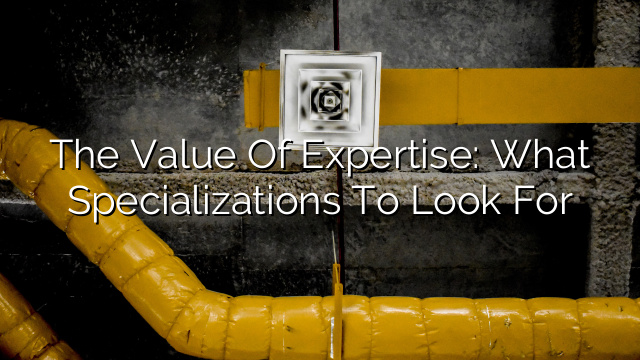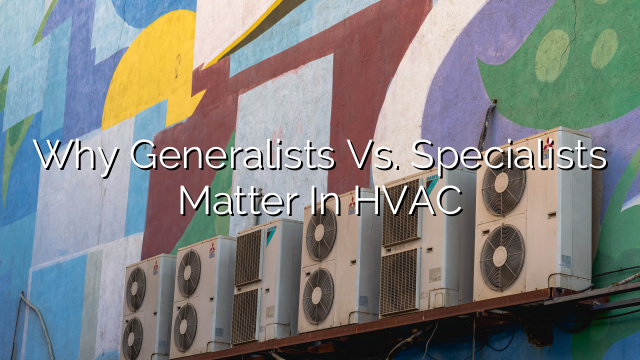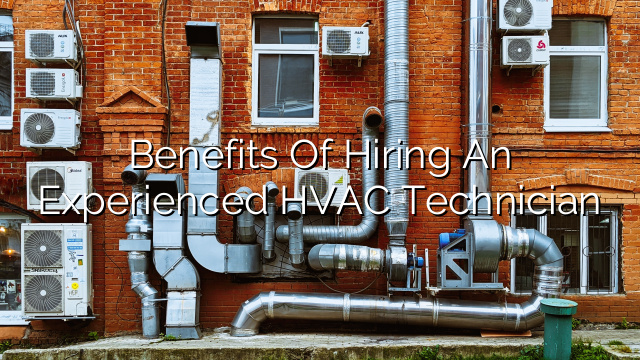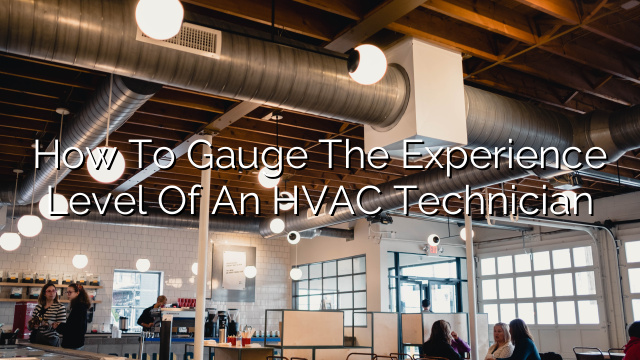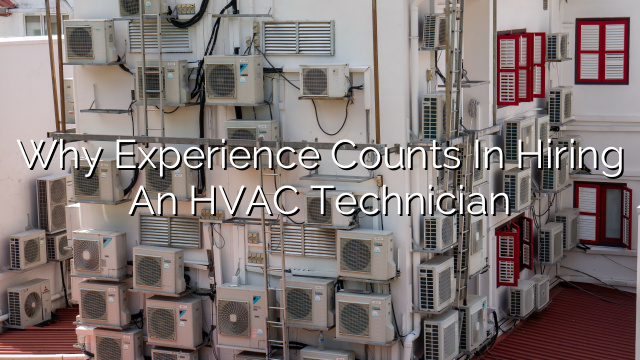When it comes to hiring an HVAC technician, experience and expertise are crucial factors to consider. HVAC systems are complex and require skilled professionals to ensure proper installation, maintenance, and repair. Hiring an HVAC tech with the right specialization can save you time, money, and ensure the comfort and efficiency of your heating and cooling systems. In this article, we’ll explore the value of expertise and the specializations to look for when hiring an HVAC technician.
The Value of Expertise
Expertise in any field is invaluable, and HVAC is no exception. An HVAC technician with years of experience has likely encountered a wide range of issues and has developed the skills and knowledge to effectively address them. They can quickly diagnose problems, recommend the most appropriate solutions, and efficiently carry out repairs or installations. Experienced technicians are also more likely to stay up-to-date with industry advancements, ensuring that they can provide the most efficient and effective solutions for your HVAC needs.
Specializations to Look For
Like many other professions, HVAC technicians can specialize in various areas. By hiring a technician with the right specialization for your specific needs, you can benefit from their in-depth knowledge and expertise. Here are a few common HVAC specializations to consider:
1. Residential HVAC
Residential HVAC technicians
specialize in heating and cooling systems for homes. They are well-versed in the installation, maintenance, and repair of residential HVAC equipment such as air conditioners, furnaces, heat pumps, and ductless mini-split systems. Hiring a residential HVAC technician ensures that they have experience working in residential settings and understand the unique challenges and requirements of home HVAC systems.
2. Commercial HVAC
Commercial HVAC technicians
specialize in larger-scale heating and cooling systems found in commercial buildings. They have the knowledge and skills to handle the complexities of HVAC systems in office buildings, retail stores, schools, hospitals, and other commercial establishments. Commercial HVAC technicians are well-versed in working with high-capacity units, complex ductwork, and zoning systems.
3. Industrial HVAC
Industrial HVAC technicians
specialize in HVAC systems for industrial facilities such as factories, warehouses, and manufacturing plants. These facilities often have unique HVAC requirements, such as ventilation systems for controlling air pollutants and regulating temperature and humidity levels. Industrial HVAC technicians are trained to handle these specialized systems and ensure optimal performance and safety.
4. Energy Efficiency
Energy efficiency specialists
focus on improving the energy efficiency of HVAC systems. They are knowledgeable about the latest technologies and techniques for reducing energy consumption and lowering utility costs. Hiring an energy efficiency specialist can help you identify and implement energy-saving solutions for your HVAC system, such as programmable thermostats, zoning systems, or energy-efficient equipment upgrades.
Frequently Asked Questions (FAQ)
Q: How can I determine if an HVAC technician is experienced?
A: When hiring an HVAC technician, ask about their years of experience in the field. You can also inquire about the types of systems they have worked on and ask for references or examples of previous projects they have completed.
Q: Are certifications important when hiring an HVAC technician?
A: Certifications, such as those from organizations like the North American Technician Excellence (NATE) or the HVAC Excellence, can serve as proof of a technician’s knowledge and competence. While certifications are not always necessary, they can be an indicator of a technician’s dedication to their profession.
Q: How often should I have my HVAC system serviced?
A: It is recommended to have your HVAC system serviced at least once a year, ideally before the start of the cooling or heating season. Regular maintenance helps ensure that your system operates efficiently, reduces the risk of breakdowns, and prolongs its lifespan.
Q: What should I do if my HVAC system is not cooling or heating properly?
A: If your HVAC system is not cooling or heating properly, check the air filter first. A dirty or clogged filter can restrict airflow and hinder the system’s performance. If the problem persists, it is best to contact a qualified HVAC technician to diagnose and resolve the issue.
Q: Can I perform HVAC repairs or installations myself?
A: HVAC systems are complex and require specialized knowledge and skills to install, repair, and maintain properly. Attempting to perform HVAC repairs or installations yourself can lead to further damage, safety hazards, and void warranties. It is best to hire a qualified HVAC technician for any HVAC-related work.
In conclusion, the value of expertise in HVAC cannot be overstated. When hiring an HVAC technician, consider their experience and specialization to ensure you get the best service possible. Whether you need residential, commercial, industrial, or energy efficiency services, finding a technician with the right specialization can make a significant difference in the performance and longevity of your HVAC systems. By hiring a skilled and specialized HVAC technician, you can rest assured that your heating and cooling needs are in good hands.

